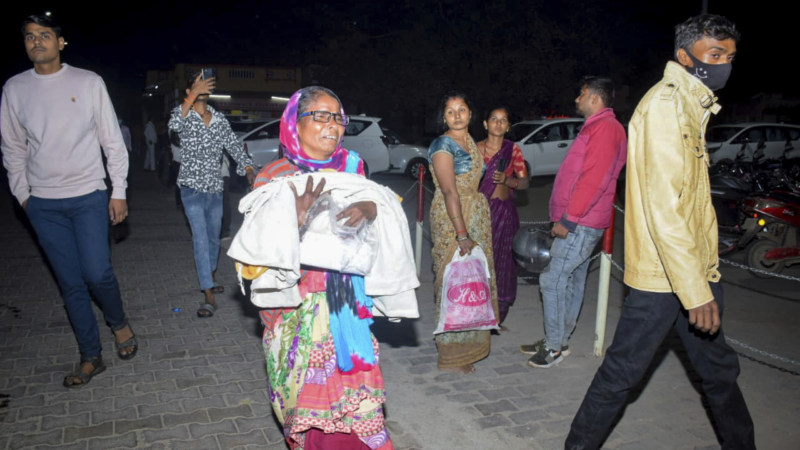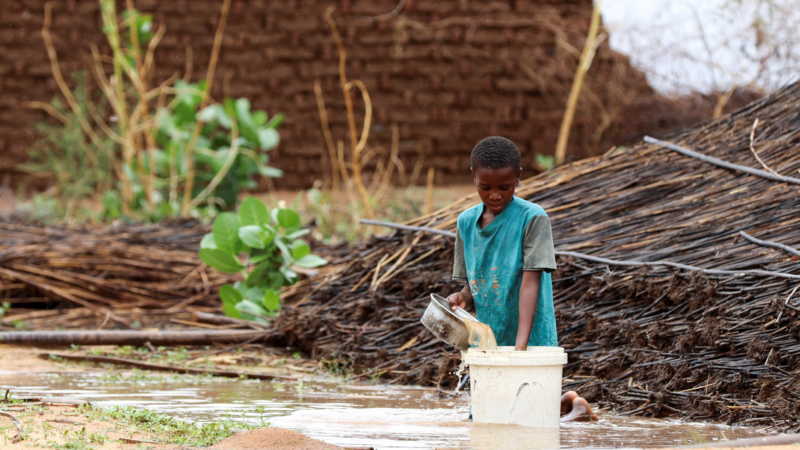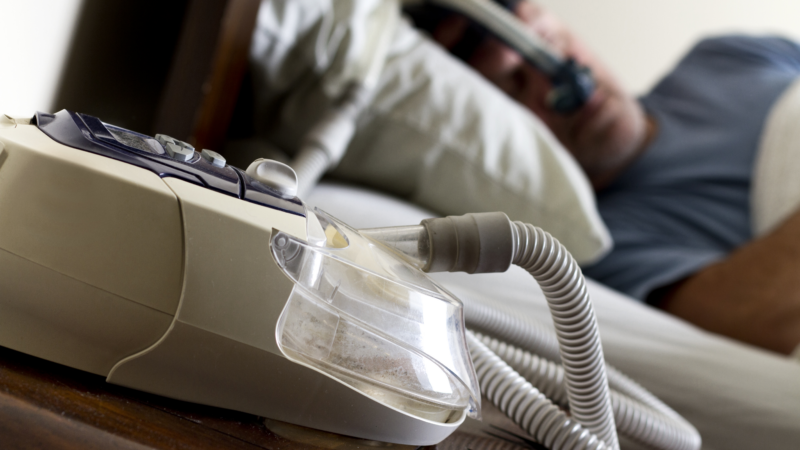Fire engulfs a hospital ward in northern India, killing 10 newborn babies
LUCKNOW, India — A fire tore through a neonatal intensive care unit in a hospital in northern India, killing 10 newborn babies and injuring 16 others, authorities said.
The fire occurred late Friday at a hospital in Jhansi city in India’s Uttar Pradesh state. Officials said the blaze spread quickly through the ward, where 55 infants were being treated. Forty-five babies were rescued and are receiving medical care, said Bimal Kumar Dubey, a local official.
An initial investigation points to lapses in safety protocols, including expired fire extinguishers and non-functional fire alarms, which officials say delayed rescue efforts. Authorities are conducting a thorough probe to determine the cause of the fire and those responsible.
Brajesh Pathak, the deputy chief minister of the state, visited the hospital and met with families on Saturday. He pledged government support for the victims’ families and promised a thorough investigation.
“We will identify those responsible for this tragedy and take strict action. The government stands with families during this difficult time,” he said.
He added that DNA tests were being carried out after which the bodies of the babies will be handed over to their families.
The fire spread quickly through the neonatal ward. When the firefighters arrived, the ward was engulfed in flames and plumes of smoke. Rescuers had to break through windows to reach the newborn babies. Eyewitnesses said the rescue operation began about 30 minutes after the fire erupted, delaying evacuation efforts.
Praminder Singh Chandel, a paramedic at the hospital, said that since the ward was located on the ground floor, firefighters managed to rescue several newborn babies. The ward was divided into two — with one unit closer to the hospital entrance. The babies located there were the most affected by the fire, with some dying due to severe burns.
Shocked and grieving family members camped out near the hospital on Saturday demanding answers over what they believe were poor safety measures.
While fire alarms had been installed in the intensive care unit, parents and witnesses said they did not activate during the blaze. Hospital staff acted only after they saw signs of smoke and fire.
“If the safety alarm had worked, we could have acted sooner and saved more lives,” said Naresh Kumar, a parent who lost his baby.
Akhtar Hussain, whose son was rescued and is receiving treatment in an adjacent ward, agreed that the tragedy could have been prevented if the hospital had better safety protocols.
Pathak, the state official, said the hospital’s fire safety systems were last inspected in February, followed by a mock drill in June.
Fires are common in India, where building laws and safety norms are often flouted by builders and residents. Poor maintenance and lack of proper firefighting equipment in the country also leads to deaths.
Party City files for bankruptcy and plans to shutter nationwide
Party City was once unmatched in its vast selection of affordable celebration goods. But over the years, competition stacked up at Walmart, Target, Spirit Halloween, and especially Amazon.
Sudan’s biggest refugee camp was already struck with famine. Now it’s being shelled
The siege, blamed on the Rapid Support Forces, has sparked a new humanitarian catastrophe and marks an alarming turning point in the Darfur region, already overrun by violence.
FDA approves weight loss drug Zepbound to treat obstructive sleep apnea
The FDA said studies have shown that by aiding weight loss, Zepbound improves sleep apnea symptoms in some patients.
Netflix is dreaming of a glitch-free Christmas with 2 major NFL games set
It comes weeks after Netflix's attempt to broadcast live boxing between Jake Paul and Mike Tyson was rife with technical glitches.
Opinion: The Pope wants priests to lighten up
A reflection on the comedy stylings of Pope Francis, who is telling priests to lighten up and not be so dour.
The FDA restricts a psychoactive mushroom used in some edibles
The Food and Drug Administration has told food manufacturers the psychoactive mushroom Amanita muscaria isn't authorized for food, including edibles, because it doesn't meet safety standards.







